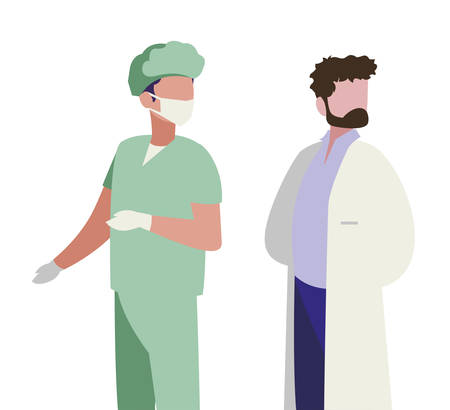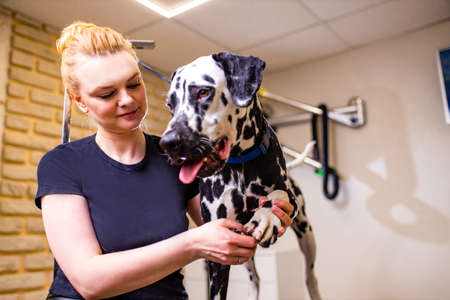Overview of UK Veterinary Qualifications
Understanding veterinary qualifications in the United Kingdom is crucial for anyone seeking to ensure their pet receives care from a properly certified professional. The UK’s veterinary sector is meticulously regulated, with a clear educational structure and specific credentials required for practice. At the heart of this framework is the Royal College of Veterinary Surgeons (RCVS), the regulatory body responsible for maintaining standards and overseeing registration of all practicing vets in the country. Aspiring veterinarians must follow a prescribed educational route, typically beginning with a five to six-year degree in veterinary medicine or veterinary science from an RCVS-accredited institution. After completing their studies, graduates must register with the RCVS before they are legally allowed to practice as veterinary surgeons.
Main Regulatory Bodies and Pathways
| Body/Institution | Role |
|---|---|
| Royal College of Veterinary Surgeons (RCVS) | Regulates veterinary professionals, accredits degrees, manages registration |
| British Veterinary Association (BVA) | Professional association supporting vets and advancing veterinary science |
| Accredited Universities | Deliver approved veterinary medicine/science degrees |
The pathway to becoming a vet in the UK is both rigorous and structured to maintain high standards across the profession. This ensures that all practicing veterinarians possess not only academic knowledge but also practical competence and ethical responsibility. When looking for a vet, it’s essential to check their qualifications and registration status with the RCVS, as this guarantees adherence to national standards and ongoing professional development.
Key Veterinary Degrees and Credentials
When assessing a veterinary professional’s qualifications in the UK, it’s important to recognise the main degrees and credentials that demonstrate competence and credibility. Understanding these titles helps you ensure your chosen vet meets the high standards required for animal care in Britain.
Main Veterinary Qualifications
| Abbreviation | Full Title | Description |
|---|---|---|
| BVSc | Bachelor of Veterinary Science | A common undergraduate degree awarded by several UK universities, signifying completion of veterinary training. |
| BVM&S | Bachelor of Veterinary Medicine and Surgery | Granted by the University of Edinburgh, equivalent to BVSc, with a strong reputation for excellence in clinical skills. |
| MRCVS | Member of the Royal College of Veterinary Surgeons | This is not an academic degree but a professional status. All practising vets in the UK must be MRCVS, meaning they are registered and regulated by the RCVS. |
| BVS/BVetMed | Bachelor of Veterinary Medicine/Science (various titles) | Differently named degrees from other UK universities; all are recognised as qualifying routes to become a vet. |
What These Credentials Mean for You
The presence of these qualifications ensures your vet has completed rigorous academic and practical training. Additionally, only those listed as MRCVS are legally allowed to practise veterinary medicine in the UK. Always check for this credential when choosing your veterinary provider.

3. The Role of the Royal College of Veterinary Surgeons (RCVS)
The Royal College of Veterinary Surgeons (RCVS) is the regulatory authority for veterinary surgeons in the UK. Its primary function is to oversee and maintain professional standards within the veterinary sector, ensuring that only qualified individuals are permitted to practise veterinary medicine. When searching for a reputable vet, one of the most crucial credentials to check is RCVS registration.
RCVS’s Authority
The RCVS was established by Royal Charter and operates under UK law, giving it statutory authority to set educational standards for veterinary qualifications and regulate professional conduct. This means that every practising veterinary surgeon in the UK must be registered with the RCVS to legally treat animals, prescribe medications, or perform surgery.
Importance in Verifying Credentials
Before employing or consulting a vet, you can verify their registration status through the RCVS online register. This ensures that your chosen professional has completed approved training, passed necessary examinations, and adheres to ongoing requirements such as Continuing Professional Development (CPD). The RCVS also investigates complaints and enforces disciplinary action if standards are not met, safeguarding animal welfare and public confidence.
The Significance of Being a Registered Veterinary Surgeon
| Requirement | Explanation |
|---|---|
| RCVS Registration | Mandatory for legal practice as a vet in the UK. |
| Professional Standards | Commitment to ethical conduct and high-quality care. |
| CPD Obligations | Ongoing education to stay updated with best practices. |
| Public Accountability | Subject to investigation and discipline by RCVS if necessary. |
Selecting an RCVS-registered vet guarantees that you are dealing with a qualified professional who meets strict regulatory standards. This credential should always be at the top of your checklist when choosing a veterinary provider in the UK.
4. Specialist Qualifications and Postgraduate Training
For those interested in advanced veterinary care, understanding specialist qualifications and postgraduate training in the UK is crucial. Not all vets are general practitioners; some choose to focus on specific areas such as surgery, dermatology, or cardiology. Achieving specialist status requires years of additional study, practical experience, and recognised certifications.
Specialist Areas Within Veterinary Medicine
In the UK, veterinary medicine covers a wide range of specialties. Here are some common examples:
| Specialist Area | Description |
|---|---|
| Surgery | Advanced procedures including orthopaedics and soft tissue operations |
| Dermatology | Treatment of skin conditions in animals |
| Cardiology | Heart-related diseases and diagnostics |
| Oncology | Cancer diagnosis and treatment plans |
Additional Certifications: CertAVP and More
The Certificate in Advanced Veterinary Practice (CertAVP) is a popular postgraduate qualification that demonstrates a vet’s commitment to continued professional development. Offered by institutions like the Royal College of Veterinary Surgeons (RCVS), this certification allows vets to tailor their learning towards particular interests or species.
Other Recognised Postgraduate Qualifications:
- Diploma of the European College (e.g., DipECVS for surgery)
- MSc or PhD in relevant animal health disciplines
The Pathway to Becoming a Specialist
The journey to becoming an RCVS-recognised specialist involves several steps:
- Complete a veterinary degree registered with the RCVS
- Gain significant clinical experience in your chosen field (often 5+ years)
- Pursue further study or research, usually at postgraduate level
- Awarded relevant diplomas or certificates (such as CertAVP or European Diplomas)
- Apply for RCVS Specialist Status through rigorous assessment and peer review
Why This Matters When Choosing a Vet
If your pet has complex health needs, seeking out a vet with specialist credentials ensures access to the latest knowledge and advanced treatment options. Always check for these qualifications on practice websites or ask directly about a vet’s advanced training background.
5. Recognising Accredited Practices and Professionals
When seeking veterinary care in the UK, its crucial to ensure you are consulting qualified professionals and using clinics that adhere to high standards. Accreditation is your assurance of quality, safety, and professionalism. One of the most respected accreditation systems is the RCVS Practice Standards Scheme (PSS), operated by the Royal College of Veterinary Surgeons (RCVS). This scheme sets rigorous benchmarks for veterinary practices across the country.
How to Identify Accredited Practices
The easiest way to verify if a clinic is accredited is to look for the official RCVS logo displayed on their premises or website. Accredited practices are inspected regularly and must meet specific criteria regarding hygiene, equipment, staff training, and client communication. Additionally, the RCVS maintains an online search tool where you can check a practice’s status before making an appointment.
Key Features of Accredited Practices
| Accreditation Level | What it Means | Typical Services Covered |
|---|---|---|
| Core Standards | Basic legal and professional requirements met | Routine consultations, vaccinations, minor procedures |
| General Practice | Enhanced clinical care and staff development | Surgery, diagnostics, emergency care |
| Hospital Status | Highest level of facilities and 24-hour care | Intensive care, advanced surgery, specialist referrals |
Verifying Professional Credentials
All practicing vets and vet nurses in the UK must be registered with the RCVS. You can confirm a professional’s registration using the RCVS online register. Legitimate practitioners will have post-nominals such as MRCVS (Member of the Royal College of Veterinary Surgeons) or RVN (Registered Veterinary Nurse) after their names. Always feel free to ask for proof of qualifications during your visit.
Summary: Making Informed Choices
Selecting an accredited clinic and properly credentialed professionals not only guarantees high standards but also ensures your pet receives the best possible care according to UK regulations. By checking for RCVS accreditation and verifying individual credentials, you protect both your pet’s wellbeing and your peace of mind.
6. What to Check When Choosing a UK Vet
Practical Steps for Verifying Veterinary Credentials
When selecting a vet in the UK, it’s vital to ensure they have the right qualifications and are appropriately registered. Here are practical steps you can follow:
1. Confirm Registration with the RCVS
All practising vets in the UK must be registered with the Royal College of Veterinary Surgeons (RCVS). Ask to see their RCVS certificate or check online using the RCVS Find a Vet service.
2. Understand Displayed Qualifications
Veterinary practices often display certificates and accreditations in their reception area. Here’s how to interpret some of the most common credentials:
| Abbreviation | Full Title | Meaning |
|---|---|---|
| MRCVS | Member of the Royal College of Veterinary Surgeons | Legally required for all practising vets in the UK |
| BVM&S, BVSc, BVetMed | Bachelor of Veterinary Medicine/Science | Indicates university degree in veterinary medicine from different UK institutions |
| CertAVP, CertSAM etc. | Certificate in Advanced Veterinary Practice or similar | Postgraduate qualifications showing advanced expertise in a speciality |
3. Key Questions to Ask Your Vet
- Are you registered with the RCVS?
- Can you explain your displayed qualifications?
- Do you have any additional certifications or specialist training?
- Is your practice RCVS-accredited?
Tip:
If you’re unsure about any qualification or title, don’t hesitate to ask your vet for clarification. Professional vets will welcome your interest and be happy to provide proof or explanations.
4. Look Out for Specialist Titles
If your pet requires specialist care, check if the vet is an RCVS-Recognised Specialist (e.g., in surgery or dermatology) by searching the official RCVS directory.
Your Role as a Client
Your vigilance ensures your pet receives care from qualified professionals. By following these checks and asking informed questions, you can feel confident in choosing the right UK vet for your animal’s needs.


